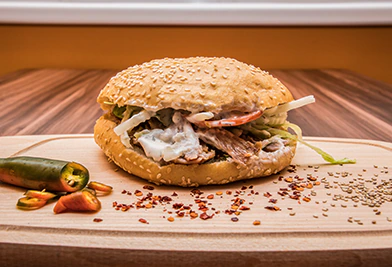| Essence |
Phosphoric Acid (E338) is a mineral acid (inorganic acid) that has no smell or color but is highly water soluble and has a sour and acidic taste. In food and supplements, it is primarily used as an acidity regulator and flavor enhancer. It can’t be found naturally in nature. It is also used in water treatment, metal finishing, fertilizer, detergent, and electronics-related industries, as well as medicine. |
| Names |
Orthophosphoric acid, Monophosphoric Acid, White Phosphoric Acid, Phosphoric (V) Acid, Orthophosphoric acid mono-, di-, and tri-basic, Food-grade phosphoric acid, Thermal phosphoric acid, E338, Phosphoric Acid, and others. |
| Sourcing |
Phosphate Rock (wet process) or Elemental Phosphorus (thermal process). The former is the more commonly used one. |
| Manufacturing |
The additive can be created either by the wet process or the thermal process. In the wet process, the relevant sourcing ingredient is mixed with sulfuric acid. Then, it gets purified and concentrated. In the thermal process, the relevant sourcing ingredient is heated in the presence of oxygen. This creates phosphorus pentoxide which is then dissolved in water. After that, it also gets purified and concentrated. |
| Application |
Acidity regulator, Preservative, Emulsifier, Flavor enhancer, Buffering agent, Sequestrant, and possibly some others. It is highly soluble in water. |
| Acceptable Daily Intake |
It is claimed to be safe in amounts of up to 70 milligrams per kilogram of body weight. |
| Side Effects |
In high amounts, it can contribute to cavities, dental erosion, kidney disease, and osteoporosis. It may also chip away at bone health, and indirectly (typically, through overconsumption of soft drinks) contribute to weight gain and various metabolic disorders. Being sensitive to it may cause gastrointestinal discomfort, acid reflux, or heartburn. People with acid-related gastrointestinal disorders (like Gastroesophageal reflux disease (GERD), Gastritis, or Peptic ulcer disease) and kidney disease should be careful when consuming it or simply avoid it completely. |
| Benefits |
None. |
| Studies |
9,005+ studies on Pubmed. More than 100 studies on safety. |
| Allergens |
None. |
| Diet Restrictions |
It may or may not be Kosher and Halal compatible. |
| Health Knight Assessment |
Typically Harmless. | Hence, it’s a Category 1 Additive. |
| Products |
Phosphoric Acid (E338) can be found in processed foods such as soft drinks, energy drinks, sauces, protein waters, salad dressings and other dressings, muffins, hamburgers, marinades, tortillas, tortilla chips, spreads, cottage cheese, candy, premade rice dishes, premade mushroom-related dishes, pastries, hummus, cookies, butter, salads, sushis, kebabs (doners), bread, nut-related snacks, mayonnaise, instant pasta, uncooked turkey meat, and more. |



